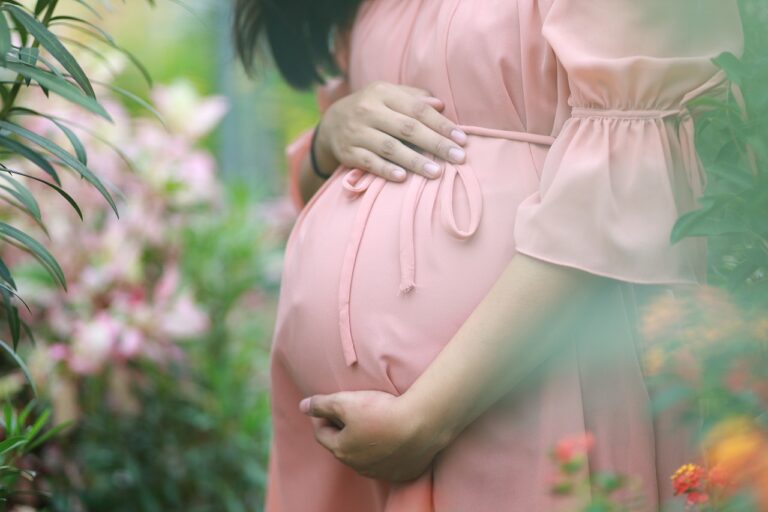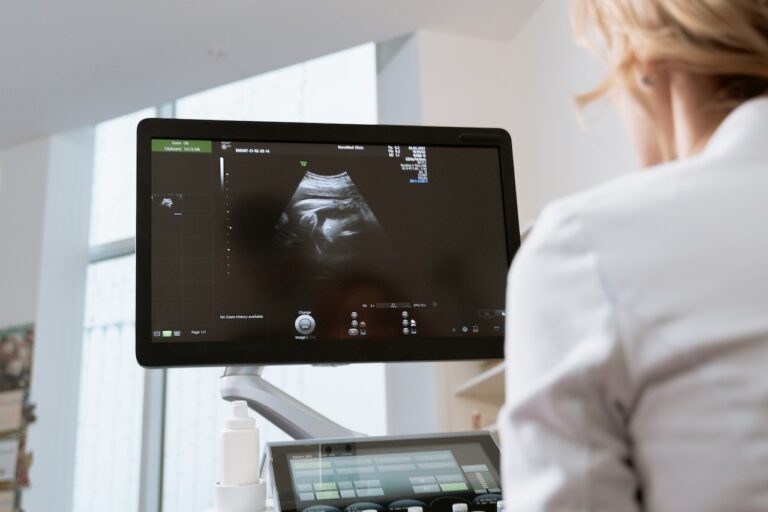10 Unexpected Pregnancy Symptoms You Might Be Overlooking
Skip To The Following Sections
- Fatigue and Exhaustion During Early Pregnancy
- Heightened Sense of Smell: Unexpected Pregnancy Symptom
- Mood Swings and Emotional Changes in Pregnancy
- Increased Salivation: A Surprising Pregnancy Symptom
- Nasal Congestion and Nosebleeds: Overlooked Pregnancy Symptoms
- Dental Issues and Oral Health Changes in Pregnancy
- Intense Food Cravings and Aversions: Lesser-Known Pregnancy Symptoms
- Skin Changes: Unanticipated Pregnancy Symptoms
- Dizziness and Faintness During Pregnancy
- Changes in Hair and Nails: Often Ignored Pregnancy Symptoms
- What are some often ignored pregnancy symptoms?
- What are some early signs of pregnancy?
- Why do pregnant women experience changes in hair and nails?
- Why do some pregnant women experience an increased sense of smell?
- Why do pregnant women have mood swings?
- What causes increased salivation during pregnancy?
- Why do pregnant women experience nasal congestion and nosebleeds?
- How does pregnancy affect oral health?
- Why do pregnant women experience intense food cravings and aversions?
- Why do pregnant women experience skin changes?
- What causes dizziness and faintness during pregnancy?
Fatigue and Exhaustion During Early Pregnancy
Fatigue and exhaustion are common experiences during the early stages of pregnancy. Many women find themselves feeling unusually tired, even if they have never experienced such extreme fatigue before. This can be attributed to the hormonal changes taking place in the body. The increased production of progesterone, which is necessary to support the pregnancy, can leave women feeling drained and lacking in energy.
Alongside hormonal changes, other factors can contribute to the overwhelming fatigue experienced during early pregnancy. The body’s metabolism is working harder to support the growth and development of the growing fetus, resulting in an increased demand for energy. Additionally, the body is busy producing more blood, which can further drain a woman’s energy levels. Consequently, activities that once seemed effortless can suddenly feel exhausting, leading many women to seek additional rest and sleep during this time.
Heightened Sense of Smell: Unexpected Pregnancy Symptom
Pregnancy brings about a multitude of changes in a woman’s body, some of which can be quite unexpected. One such symptom that often catches women off guard is a heightened sense of smell. During early pregnancy, many women find themselves more sensitive to odors that they previously would not have noticed.
This increased sensitivity to smells can be both a blessing and a curse. On one hand, pregnant women may find pleasure in the fragrances around them, like the smell of fresh flowers or a loved one’s cologne. However, on the other hand, they might also experience an overwhelming aversion to certain smells that they once found tolerable or even pleasant. These strong reactions to odors can be surprising and sometimes challenging to manage.
Mood Swings and Emotional Changes in Pregnancy
Pregnancy is a time of significant physical and hormonal changes for a woman. Alongside these changes, many expectant mothers also experience mood swings and emotional fluctuations. These shifts in mood can leave pregnant women feeling a rollercoaster of emotions, ranging from joy and excitement to sadness and irritability.
The hormonal changes occurring during pregnancy can contribute to the emotional ups and downs. Fluctuating levels of estrogen and progesterone can affect neurotransmitters and brain chemicals related to mood regulation. Moreover, the anticipation and adjustment to the forthcoming responsibilities of parenthood can also bring about a whirlwind of emotions. It is not uncommon for pregnant women to feel overwhelmed one moment and elated the next. The support and understanding of partners and loved ones can play a crucial role in helping expectant mothers navigate their emotional journey throughout pregnancy.
Increased Salivation: A Surprising Pregnancy Symptom
Pregnancy is known for its array of unique and sometimes unexpected symptoms. While most of us are aware of morning sickness and food cravings, one symptom that often surprises expecting mothers is increased salivation. This excessive production of saliva, also known as ptyalism, can leave pregnant women feeling like they are drooling constantly.
Although the exact cause of increased salivation during pregnancy is not fully understood, hormonal changes are believed to play a role. The surge in hormones, particularly estrogen and progesterone, can affect the salivary glands, resulting in an overproduction of saliva. This excessive salivation can be particularly problematic for some women, leading to discomfort and even embarrassment. While the symptom may vary in severity among individuals, it is essential to remember that increased salivation during pregnancy is typically temporary and tends to subside as the pregnancy progresses.
Nasal Congestion and Nosebleeds: Overlooked Pregnancy Symptoms
Many pregnant women experience nasal congestion and nosebleeds as one of the lesser-known pregnancy symptoms. This can be attributed to hormonal changes that occur during pregnancy. The increased levels of estrogen in the body can lead to swelling and inflammation of the blood vessels in the nose, causing congestion and sometimes even nosebleeds. Additionally, the increased blood flow to the mucous membranes can make them more sensitive and prone to bleeding. While this symptom may be bothersome, it is usually temporary and can be managed with simple remedies like nasal saline drops or using a humidifier to add moisture to the air.
Although nasal congestion and nosebleeds are common during pregnancy, they are often overlooked as symptoms. Many women may dismiss them as just another inconvenience, attributing it to allergies or changes in the weather. However, it is essential to recognize that these symptoms can be a result of hormonal changes in the body. If you are experiencing persistent congestion or frequent nosebleeds, it is advisable to consult your healthcare provider for further evaluation and guidance. Understanding and addressing these overlooked pregnancy symptoms can help ensure a smoother and more comfortable journey throughout pregnancy.
Dental Issues and Oral Health Changes in Pregnancy
Many women experience various dental issues and oral health changes during pregnancy, which can be attributed to the hormone fluctuations and changes in the body. One common issue is pregnancy gingivitis, characterized by swollen, tender, and bleeding gums. This condition is caused by an increased level of progesterone in the body, which can lead to an overgrowth of bacteria in the mouth. It is important for pregnant women to be mindful of their dental health during this time, as untreated pregnancy gingivitis can potentially lead to more severe gum disease and even tooth loss.
Additionally, some women may notice changes in their oral health during pregnancy, such as increased tooth sensitivity or the development of small, benign growths on the gums called pregnancy tumors. These tumors are not harmful and often go away after giving birth. However, it is still crucial for pregnant women to maintain regular dental checkups and practice good oral hygiene to prevent any potential complications. Overall, being aware of these possible dental issues and seeking proper dental care can help ensure the well-being of both mother and baby during pregnancy.
Intense Food Cravings and Aversions: Lesser-Known Pregnancy Symptoms
Intense food cravings and aversions are often experienced by pregnant women and are considered lesser-known pregnancy symptoms. Many expectant mothers find themselves craving foods they normally wouldn’t eat or having a sudden aversion to certain foods they previously enjoyed. These cravings and aversions can range from specific tastes and flavors to textures and smells.
While the exact cause of these intense food cravings and aversions during pregnancy is still not fully understood, hormonal changes are believed to play a significant role. Fluctuations in hormonal levels can impact the sense of taste and smell, leading to the development of these cravings and aversions. It is also thought that the body may be trying to fulfill certain nutritional needs by craving specific foods. Conversely, aversions to certain foods may be the body’s way of protecting the growing baby from potential harm.
Skin Changes: Unanticipated Pregnancy Symptoms
Pregnancy brings about numerous changes in a woman’s body, some of which are well-known and expected. However, there are certain pregnancy symptoms that may take expectant mothers by surprise, such as skin changes. Many women experience various skin-related alterations during pregnancy, including darkening or lightening of the skin, the appearance of stretch marks, and an increase in sensitivity and dryness. These skin changes, although unexpected, are a normal part of the body’s response to the hormonal fluctuations that occur during pregnancy.
One of the most common skin changes experienced during pregnancy is known as hyperpigmentation. This occurs when certain areas of the skin become darker than usual, often appearing as dark patches on the face, neck, or abdomen. This condition, commonly referred to as melasma or the “mask of pregnancy,” is thought to be caused by an increase in the production of melanin, the pigment responsible for skin color. While hyperpigmentation may fade after pregnancy, some women may continue to experience these changes for an extended period. It’s important to note that protecting the skin from excessive sun exposure and using sunscreen can help prevent the worsening of hyperpigmentation.
• Hyperpigmentation is a common skin change during pregnancy
• Dark patches may appear on the face, neck, or abdomen
• Increased production of melanin causes these changes in skin color
• Protecting the skin from sun exposure and using sunscreen can help prevent worsening of hyperpigmentation
Another common skin change that pregnant women may experience is called hypopigmentation. This refers to areas of the skin becoming lighter than usual. It often occurs in the form of white patches or spots and can be particularly noticeable in individuals with darker skin tones. The exact cause of hypopigmentation during pregnancy is not fully understood, but it is believed to be related to hormonal imbalances. While this condition usually resolves itself after childbirth, it’s important for expectant mothers to consult with their healthcare provider if they notice any significant changes in their skin color.
Stretch marks are another unexpected yet common occurrence during pregnancy. These reddish or purple streaks on the abdomen, breasts, hips, and thighs are caused by rapid stretching of the skin as the baby grows. While stretch marks cannot be completely prevented, keeping the skin moisturized and maintaining a healthy weight gain throughout pregnancy can help minimize their appearance.
Pregnancy hormones can also lead to increased sensitivity and dryness of the skin. Some women may find that their usual skincare routine irritates their sensitive skin or exacerbates dryness. Using gentle cleansers and moisturizers specifically formulated for sensitive or dry skin can help alleviate these symptoms.
In addition to these specific changes, pregnant women may also notice an overall glow or radiance to their complexion due to increased blood flow and hormone levels during pregnancy. However, it’s important for expectant mothers to remember that every woman’s experience with pregnancy-related skincare changes will vary.
Overall, while some of these unexpected symptoms may cause temporary discomfort or concern for pregnant women, they are generally harmless and part of the natural process occurring within a woman’s body. It’s always best to consult with a healthcare provider if any skin changes are causing significant distress or discomfort.
Dizziness and Faintness During Pregnancy
Dizziness and faintness are common symptoms experienced by many pregnant women. These feelings can occur at any stage of pregnancy, but they tend to be more prevalent during the first and third trimesters. The changes happening in a woman’s body during pregnancy, such as increased blood volume and hormonal fluctuations, can contribute to feelings of dizziness and lightheadedness.
One of the main factors causing dizziness during pregnancy is a decrease in blood pressure. As your body works to supply oxygen and nutrients to your growing baby, your blood vessels expand, leading to lower blood pressure. This drop in blood pressure can result in feelings of lightheadedness or even faintness, especially when changing positions or standing up too quickly. Additionally, as pregnancy progresses, the growing uterus can put pressure on the blood vessels, further contributing to the episodes of dizziness. Proper hydration, avoiding sudden movements, and taking frequent breaks to rest can help alleviate these symptoms.
Changes in Hair and Nails: Often Ignored Pregnancy Symptoms
During pregnancy, many women experience changes in their hair and nails that are often overlooked as symptoms. Hormonal changes play a significant role in these transformations, causing variations in texture, thickness, and growth rate. Some women may notice that their hair becomes thicker and shinier, while others may experience excessive hair loss. Nails, on the other hand, can become brittle and more prone to breakage. These alterations can be attributed to the increased levels of hormones, such as estrogen and progesterone, which affect the hair and nail follicles. While these changes can be disconcerting for some, they are generally temporary and tend to normalize after childbirth.
Understanding the reasons behind changes in hair and nails during pregnancy can help women better cope with these lesser-known symptoms. For instance, excessive hair loss can be alarming, but it is important to know that this phenomenon, known as postpartum shedding, often occurs a few months after giving birth and is a natural part of the hair growth cycle. Additionally, maintaining a healthy diet, staying hydrated, and using gentle hair care products can help minimize the impact of these changes. Similarly, protecting nails from excessive exposure to water and chemicals and keeping them properly trimmed and moisturized can contribute to their overall health and strength during this time.
What are some often ignored pregnancy symptoms?
Changes in hair and nails, increased salivation, dental issues, intense food cravings and aversions, and nasal congestion and nosebleeds are some commonly overlooked pregnancy symptoms.
What are some early signs of pregnancy?
Fatigue and exhaustion, heightened sense of smell, mood swings, and dizziness are some early signs of pregnancy.
Why do pregnant women experience changes in hair and nails?
Pregnancy hormones can affect the growth and texture of hair and nails, leading to changes such as increased thickness or brittleness.
Why do some pregnant women experience an increased sense of smell?
Hormonal changes during pregnancy can heighten the olfactory senses, making pregnant women more sensitive to different odors.
Why do pregnant women have mood swings?
Hormonal fluctuations during pregnancy can disrupt neurotransmitters in the brain, leading to emotional changes and mood swings.
What causes increased salivation during pregnancy?
Increased salivation during pregnancy is believed to be caused by hormonal changes and increased blood flow to the salivary glands.
Why do pregnant women experience nasal congestion and nosebleeds?
Hormonal changes and increased blood flow can cause swelling of the nasal passages, leading to nasal congestion and occasional nosebleeds during pregnancy.
How does pregnancy affect oral health?
Pregnancy hormones can affect the gums, leading to conditions like pregnancy gingivitis and increased risk of dental issues such as gum disease and tooth decay.
Why do pregnant women experience intense food cravings and aversions?
Hormonal changes can affect the sense of taste and smell, leading to cravings for certain foods and aversions to others.
Why do pregnant women experience skin changes?
Hormonal changes during pregnancy can cause various skin changes, such as acne, darkening of the skin, and the appearance of stretch marks.
What causes dizziness and faintness during pregnancy?
Changes in blood pressure and circulation, hormonal fluctuations, and increased blood volume can contribute to dizziness and faintness during pregnancy.










